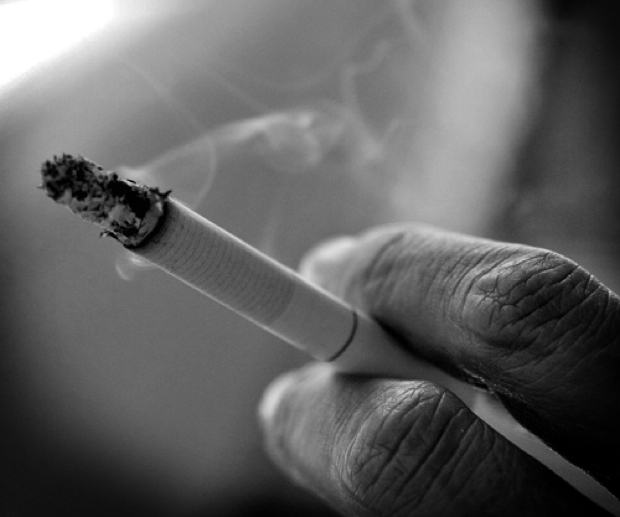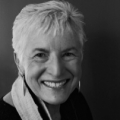You have no items in your cart. Want to get some nice things?
Go shopping
How long before they could afford our flat with its glass French doors, gardens, and pond that so enchanted me? Constructed of small stones, about two feet high and perfectly round, swimming in it, outsized goldfish, shimmering with tones ranging from silver and coral to coal and coral. Watching them as a child, I longed to join in, to glide through water aimlessly, secure, in that compact world.
“We had a beautiful life in Heidelberg,” my parents’ friend, Sara, says.
She, one of the youngest to survive the war in the Polish forests at age fourteen, my only source for family history, now that Mameh and Tateh are both gone.
Holocaust survivors, they had all emigrated to American Occupied Heidleberg from Poland. To begin anew.
[private]With the German Reichmark worthless and goods scarce, a black market economy thrived.
And, according to Sara, so did we.
“What were they dealing?” I ask Sara about Tateh, and his partner, her husband, Moishe.
“Cigarettes, with cigarettes you could buy anything, With cigarettes I paid for my gall bladder operation.”
In fact cigarettes became commodity-money, used by everyone to buy and sell in Germany, from 1945 until 1948, when the Deutshe Mark began to bolster the economy.
“They had people who drove them around. My husband had a Mercedes-Benz.”
“You had a girl who stayed with you. A nurse.”
Four years old at the time, I remember several.
For a hungry populace, cigarettes, easily transported, standardized and divisible, bought food. At the time the Allies rationed less than 1000 calories per day. With cigarettes as money one could buy butter, eggs and meat from a farmer, sugar and other staples on the black and gray markets.
Tateh ignored convention and relied on cunning to provide. I don’t know precisely how he operated. He may have bartered for cigarettes from the American soldiers who imported one thousand tons per month. Plenty of tobacco money there.
Sara doesn’t know the particulars.
“I never asked.”
I never asked either, although it’s now clear how my parents furnished the sterling flatware, candelabras, porcelain, and Czech cut crystal gracing our shelves.
Of Heidelberg I remember the earthy dark fragrance of fresh brewed coffee wafting down from a neighbor’s flat on Haupstrasse, our street. I called her Frau Kaffe. Her coffee, scarce at the time, likely procured by Tateh.
I remember the Neckar River, just steps from our flat, and tossing bits of bread to the milky white swans gliding on it, the pleasure I felt in feeding those graceful creatures.
I remember gingerbread houses with their red tiled roofs stacked at odd angles, the grand castle and mountains surrounding the town.
I remember snow.
And I remember Mameh screaming Ess! Ess!, Eat! Eat!
Mameh targeted me for childhood chubbiness, perhaps it was then fashion, more likely to shore up my reserve of fat and fuel. Just in case. In photos my parents, both portly, appeared to be catching up on lost time, their girth claiming space that had been denied them, just as they filled up on the luxuries of apartment, car, plenty.
In Mameh’s photo album they’re in smiling groups, fifteen, twenty of them celebrating, squeezed next to each other around long linen covered tables laden with platters of food and bottles of alcohol. Page after page of them. Here they are vacationing in a Baden, perched on the rim of a pool, thick arms around each other like loving, happy family. I sense their deep connection to one another, both in the physical ease they seem to share, and in bittersweet words held just inside the flicker of their eyes, we’re alive.
I turn a few pages and here are the women, also in groups, proudly posing, holding up their babies for the camera like hard won trophies. And here I am, maybe two or three, wearing a silky dress with Peter Pan collar and cuffs, clutching a plush toy, a schnauzer, a toy goat knee tall beside me. Yes, it does indeed look like a beautiful life. A bubble life, insulated from the outside reality of a broken down, hungry populace. Perhaps that was cause for celebration too.
In the end they didn’t care to live among Germans, didn’t care to hear neighbors bemoan Der Fuhrer’s defeat, or whine about the prosperity they might have enjoyed had he succeeded.
“If you wouldn’t be alive, I would have been a big man,” Sara’s neighbor told her one afternoon, while picking up little Hans, her son’s playmate.
“If they had won the war, and I was dead, he would have been a big shot,” she explains.
It must have been a difficult choice: Israel or America. My parents knew Israel would embrace them. There they might settle among their own kind, revel in a homeland. But it would be a harsh life. By 1948 Israel was at war with its Arab neighbors and they had had enough of strife. They would, all of them, surviving friends and family, eventually emigrate to America. In America they would be sheathed in the companionship of shared history, and together face the hurdles of learning a new language, navigating a strange culture and deciding how they would earn money. Tateh’s great-aunt Frances, who had the foresight to sail to America well before the war, sponsored our family.
They would begin anew, carving out yet another iteration of their lives.[/private]

About Florence Grende
Florence Grende holds an MFA from the Stonecoast program at the University of Southern Maine. Her stories and poems have appeared in Babel Fruit, Poetica, The Sun, The Berkshire Review, The Women’s Times, HotMetalBridge.org, in the anthology Robot Hearts, and, upcoming March of 2014, in the anthology The Widow’s Handbook. Heidelberg: A Beautiful Place 1946-1951 is an excerpt from her memoir, Out of Silence, currently seeking a publisher.





Lovely and sad and evocative. Beautifully written.
Gorgeous prose, the pacing just right. You’ve shared a haunting slice of life.
beautiful. unusual perspective and yet woven in to the history of it all.
Great article about life in post WWII Germany #immigration https://t.co/CY0I4yQXTV